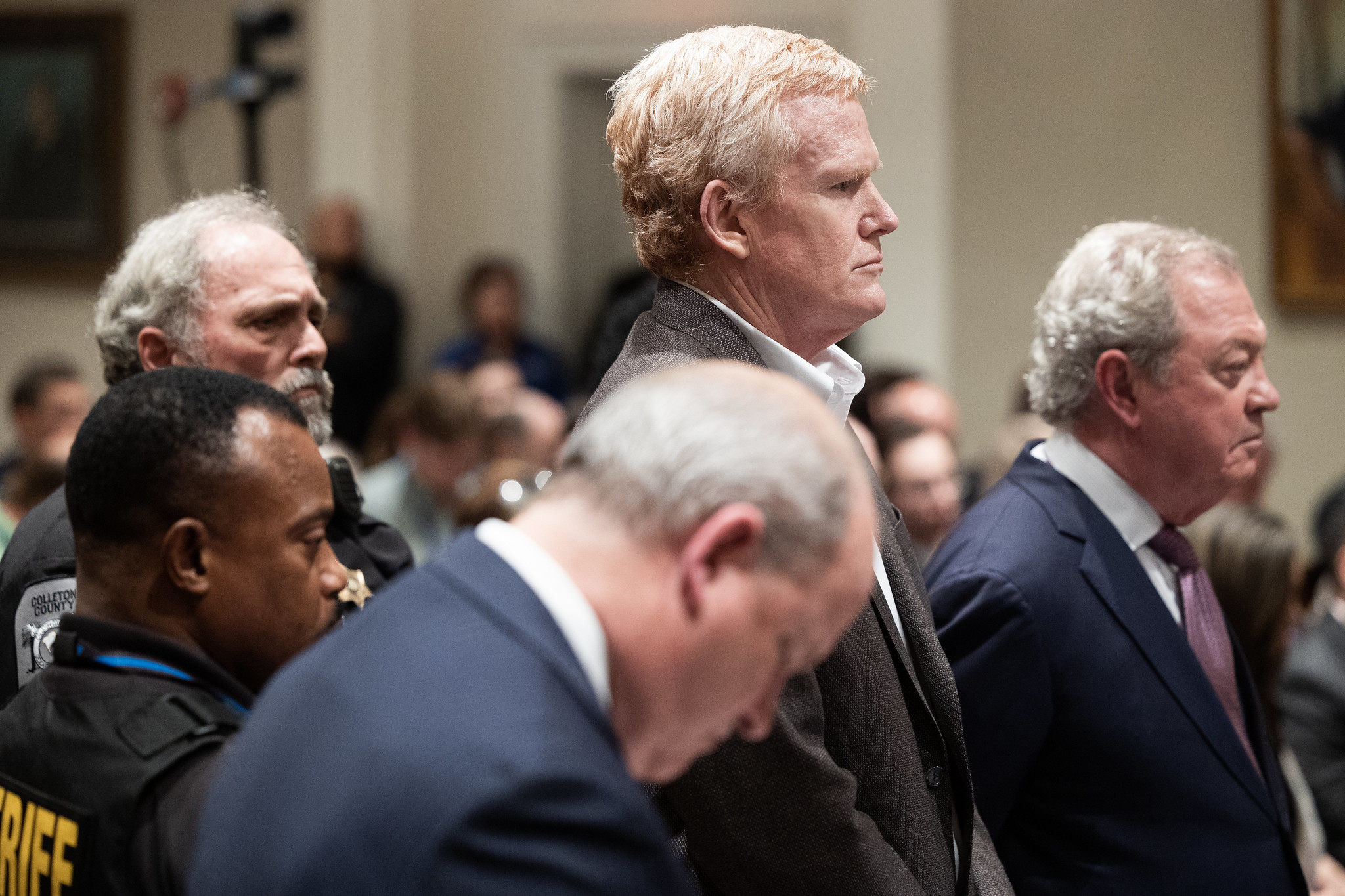
By Andy Brack, editor and publisher | Despite your opinion of Thursday’s guilty verdict by a Colleton County jury in the double murder trial of disbarred lawyer Alex Murdaugh, South Carolina needs to take a hard look at some lessons that emerged.
 The trial exposed flaws of people’s perceptions of the justice system, weaknesses in investigations by law enforcement and inequities in society. It also offered lessons in how a court should work and how lies come back to haunt.
The trial exposed flaws of people’s perceptions of the justice system, weaknesses in investigations by law enforcement and inequities in society. It also offered lessons in how a court should work and how lies come back to haunt.
One of the most disturbing comments repeated throughout social media after the jury spent less than three hours to deliver a verdict after six weeks of the trial went something like this: “Guilty! My faith has been restored in the justice system!”
Let’s unpack that. Those words illustrate feelings held by many that the justice system seems unjust for many Americans, particularly the poor who don’t have the best lawyers for their defense like Alex Murdaugh did. Those words reek of disgust with privilege and disdain.
I understand those feelings. But what’s disturbing on a larger scale is the notion that people have lost faith with the court system. What, for example, would have been your reaction to a jury verdict of innocence? Would you have moaned that the system was rigged or that lawyers got Murdaugh off or that some other impropriety occurred?
Probably, but that reaction is troubling, too. This jury, unlike most television viewers who only caught snippets of the trial, listened to dozens of witnesses and saw more than 800 pieces of evidence. They didn’t hear the lawyer-only discussions that those glued to their television sets saw. They inhabited a kind of drama-free zone and used their best judgment to figure out what happened.
So consider your reaction to the verdict. And then consider what you would have thought if it had gone the other way. But either way – while you might be personally disappointed or thrilled with a decision – you’ve got to keep faith that a serious jury did the job it was supposed to, just like juries do all over the country every day. Yes, there might be problems with privilege and money, but the fundamental democratic concept of a trial by a jury of peers needs to remain sacrosanct in America. If we lose faith in the jury system, we’ve lost faith in America.
So the first lesson of the Murdaugh trial may be that the jury system works, regardless of a verdict. Other lessons we may need to keep that in mind:
The state’s investigators: It’s pretty clear the investigation done by the State Law Enforcement Division and local authorities had some big evidentiary problems – procedures that weren’t followed and tests that weren’t done. Perhaps Gov. Henry McMaster should order a comprehensive look at SLED’s investigatory competence through a broad performance review so that future investigations will inspire more confidence.
White privilege: Similarly, state lawmakers should think long and hard about how the Murdaugh family and its long leadership role in Hampton and surrounding counties was intricately tied with plantation-style white privilege. Perhaps lawmakers should do more to reduce poverty and increase opportunities in rural areas by boosting jobs, improving social services funding and making things fairer for all.
Court system: There have been a lot of people at the Statehouse complaining recently about the state’s judiciary. But when you watched how S.C. Circuit Court Clifton Newman presided with calm and order, day after day, and led a complicated trial in the international media spotlight, you can’t be anything but impressed. Maybe the way judges in South Carolina are picked can be tweaked, but moving to popular election of judges may be throwing out the baby with the bathwater.
Lying: The Murdaugh trial didn’t have a “this glove doesn’t fit” moment like that of the 1994 murder trial in which O.J. Simpson was not convicted of killing his ex-wife and friend. But this trial had pretty clear lessons on what happens when you lie over and over. The jury likely questioned Murdaugh’s admission of multiple lies about other things – but didn’t believe a serial liar would all of a sudden start telling the truth when life in prison was the option.
While the trial is over, the Murdaugh case surely isn’t. After sentencing will be appeals. Then more trials over financial allegations. And then more sensational movies. And then the books from witnesses, lawyers, jurors and more. It ain’t over ‘til it’s over.
Andy Brack is editor and publisher of Statehouse Report and the Charleston City Paper. Have a comment? Send to: feedback@statehousereport.com.



Mr. Brack. Well- written column re: Murdaugh trial and verdict.